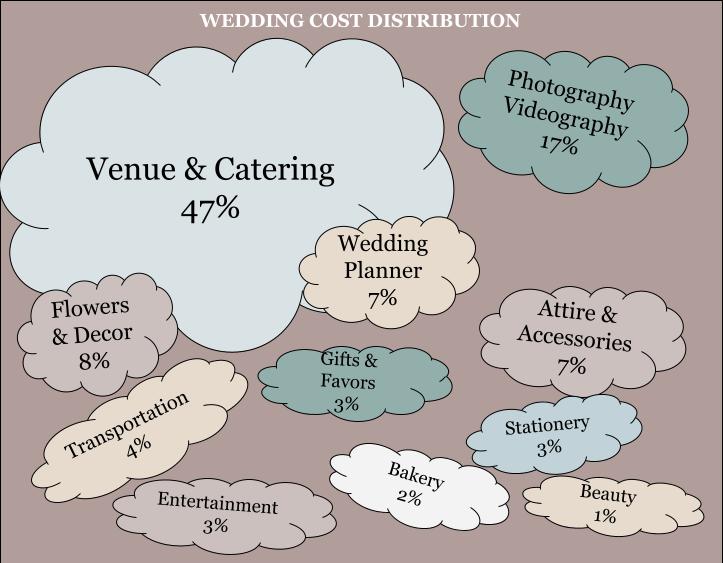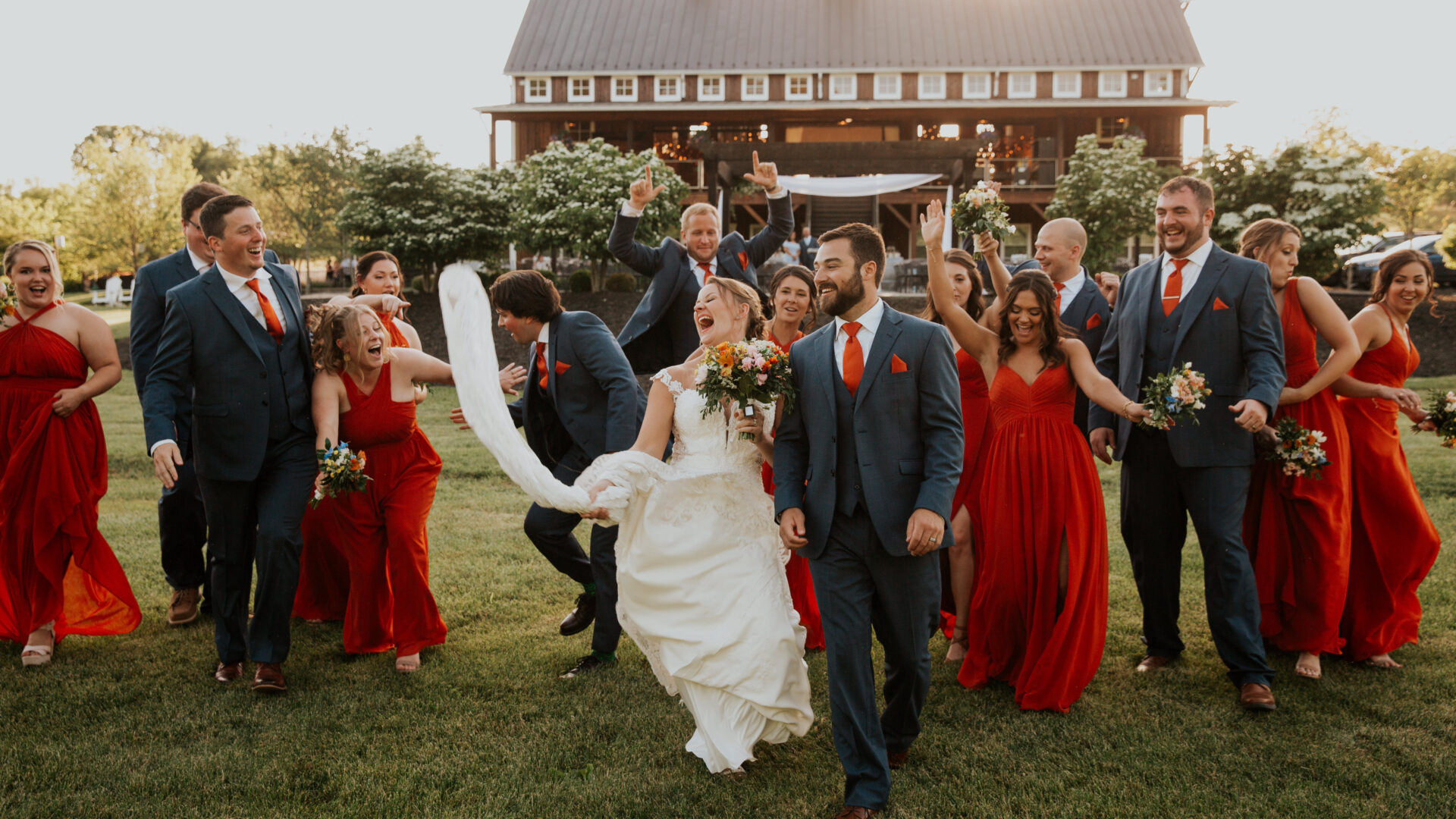By Melanie Walker
Can you pull off your dream wedding without a planner?
Are you tempted to take control of your wedding plans from start to finish?
At Zion Springs, after planning 450 weddings, we get it—sometimes you don’t need a planner, and we’re here to help you figure out when that’s the case.
In this article, we explore the scenarios where opting out of a wedding planner might make sense. From the benefits of DIY planning to understanding when professional help could be more beneficial, and show you how to strike the perfect balance between the two.
Whether planning a simple, intimate ceremony or a large, elaborate event, this guide will help you weigh the pros and cons of going solo versus enlisting expert assistance.
Pros and Cons of Skipping a Wedding Planner
Deciding whether to go solo or hire a planner is a big choice when planning your wedding.
Let's explore the benefits and challenges of handling the details yourself.
Pros
- More control: Taking charge of your wedding planning means every decision is yours. From selecting the venue to choosing the perfect flowers, you have direct oversight of each detail. This level of control can be especially appealing if you have a clear vision.
- Cost savings: One of the most significant advantages of planning your wedding is the potential for cost savings. For example, hiring a wedding planner typically accounts for about 7% of your total wedding budget.
To give you a clearer picture of where this fits into the overall costs, here’s an image that details how wedding expenses are generally distributed:

By managing the planning yourself, you could potentially reallocate that 7% to other areas of your wedding, such as custom-designed invitations and stationery, high-quality photography, or extra entertainment options like a live band or a photo booth.
With this flexibility, you can prioritize the things that mean the most to you on your big day.
Cons
- Time and stress: While planning your wedding gives you control, it also demands considerable time and effort. Balancing this with work and everyday life can quickly become overwhelming.
Though every couple’s timeline is different, studies suggest that many couples spend about 12 to 18 months planning their wedding, which can total 200 to 500 hours. It's important to consider whether you're ready to handle the added stress of coordinating every aspect of your big day.
- Lack of expertise: Wedding planners bring a wealth of experience and industry knowledge that can be invaluable, especially when dealing with complex logistics or unexpected issues. Without this expertise, you might face challenges that could have been avoided with professional guidance. For example, negotiating contracts, managing vendor relationships (such as coordinating delivery times and resolving disputes) and troubleshooting last-minute problems can be daunting without prior experience.
When a Wedding Planner Isn’t Essential
Sometimes, planning your wedding on your own can be the perfect fit.
Here are a few cases where skipping the planner might work out better:
When a Small, Simple Wedding Doesn’t Require a Planner
- Intimate gatherings: A planner might not be necessary when your guest list is just close family and friends. With fewer people, keeping track of details can be a breeze.
- Less complicated logistics: If your wedding is simple and involves only a few vendors, you might find that organizing everything on your own is manageable.
How Existing Vendor Relationships Can Make a Planner Unnecessary
- Pre-established relationships: Already have your favorite vendors on speed dial? There’s no need to bring in someone new when you’ve already got your A-team.
- Local knowledge: If you know all the best local spots and vendors, you’re already ahead of the game. Just make a few calls, and you’re set.
Experience with Event Planning
- Experience: If you’ve planned events before, pulling off your wedding could be a walk in the park. You know what to do, so why not go for it?
- Confidence in your abilities: If you’re the go-to person for organizing get-togethers, trust yourself to handle your wedding with the same ease and style.
When a Wedding Planner Might Be Necessary
While DIY wedding planning can be rewarding, there are certain situations where bringing in a professional might be the better choice.
Here are a few scenarios where hiring a planner could save you time, stress, and potential headaches:
The Challenges of Large Weddings
Managing multiple vendors and coordinating contracts, schedules, and expectations across different suppliers can quickly become overwhelming. Additionally, some venues come with specific requirements, such as strict timelines, special permits, or complex layouts.
Planning a Destination Wedding?
Planning a wedding remotely introduces a whole new set of challenges. From coordinating with local vendors to handling travel arrangements and navigating legal requirements in another country, a planner experienced in destination weddings can simplify the process.
Balancing DIY and Professional Assistance
Sometimes, the best approach is a mix of DIY planning and professional help.
Here’s how you can strike that balance:
Partial Planning Services
- Day-of coordination: A middle ground for those who want to handle most of the planning but need help on the big day. Having a planner manage the final details so everything runs smoothly when it matters most.
- Consultations: Sometimes, a little expert advice can make all the difference. You might be confident handling most of the planning but need a professional’s input for certain tricky areas. For example, you could consult a planner to help negotiate a vendor contract, design a cohesive theme, or troubleshoot a complex seating arrangement. This way, you get targeted support while still keeping the reins on the overall process.
When to Delegate Key Tasks
If you’re planning to manage your wedding yourself, there are still a few areas where professional help can be valuable:
- Vendor negotiations: Contracts can be complex. A pro can handle the fine print and secure the best deals.
- Timeline management: A planner can create a detailed schedule to keep your day running smoothly.
- Troubleshooting issues: An expert on standby can resolve any last-minute problems.
- Legal considerations: Permits and contracts can be tricky.
Next Steps in Your Wedding Planning
Planning your wedding is a personal journey, and deciding whether to bring in a planner is an important step. We’ve looked at when taking on the details yourself might work well and when bringing in a professional could be a better choice.
At Zion Springs, we know how challenging wedding planning can be, and we’re here to help you make choices that feel right for you. Now that you’ve considered the pros and cons, take some time to think about your needs and timeline. Visit our Answers and Advice page for resources that can guide you, including tips on obtaining a marriage license, and advice on choosing between indoor and outdoor wedding venues.
In the end, what matters most is that your wedding day is everything you’ve dreamed of—whether you’ve done it all yourself or had a little help along the way.


7 Wedding Reception Regrets You’ll Want to Avoid—And How to Do It Right


Jennifer and Alex’s Spring Wedding


6 Things Wedding Guests Don’t Care About











